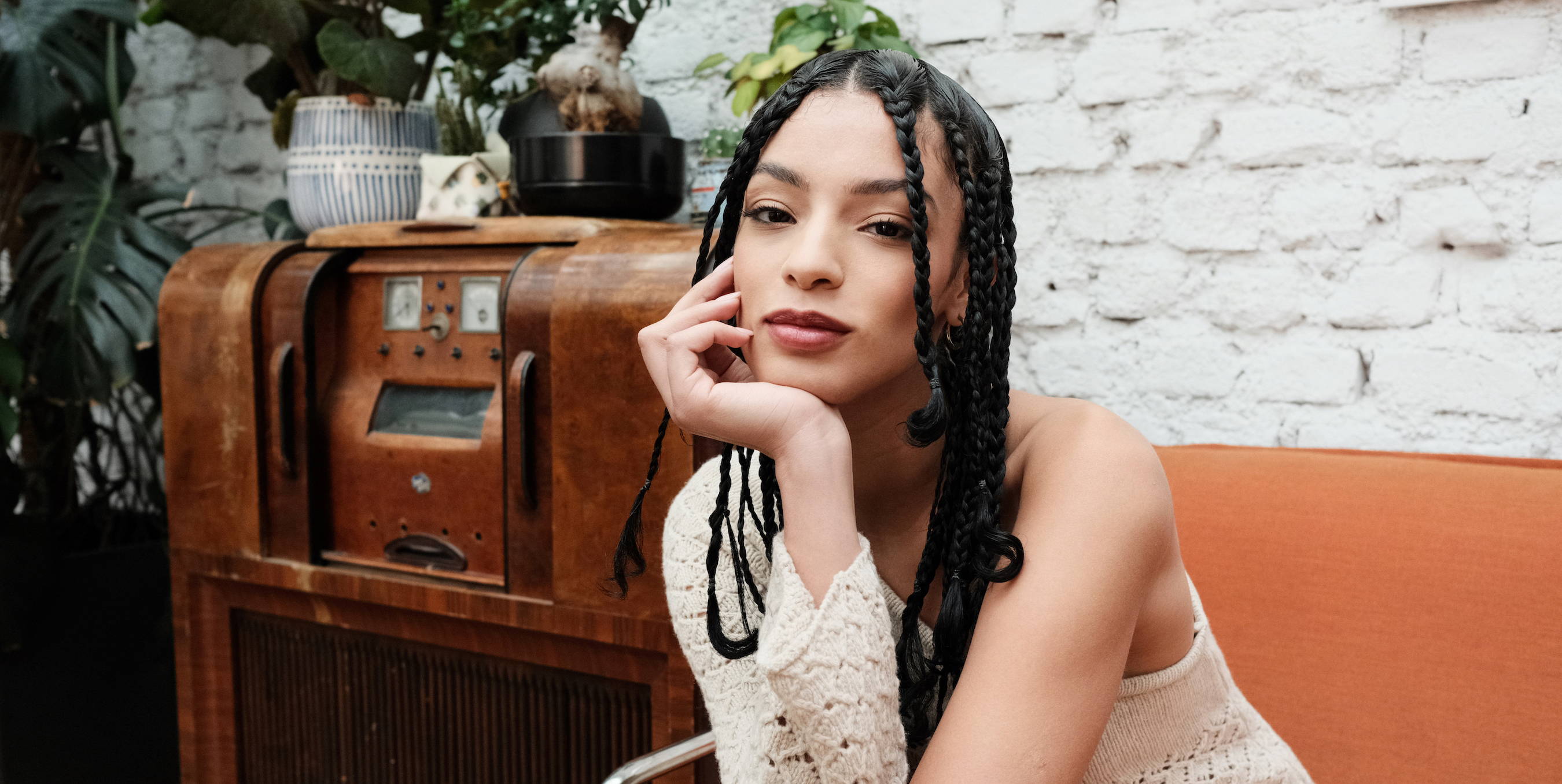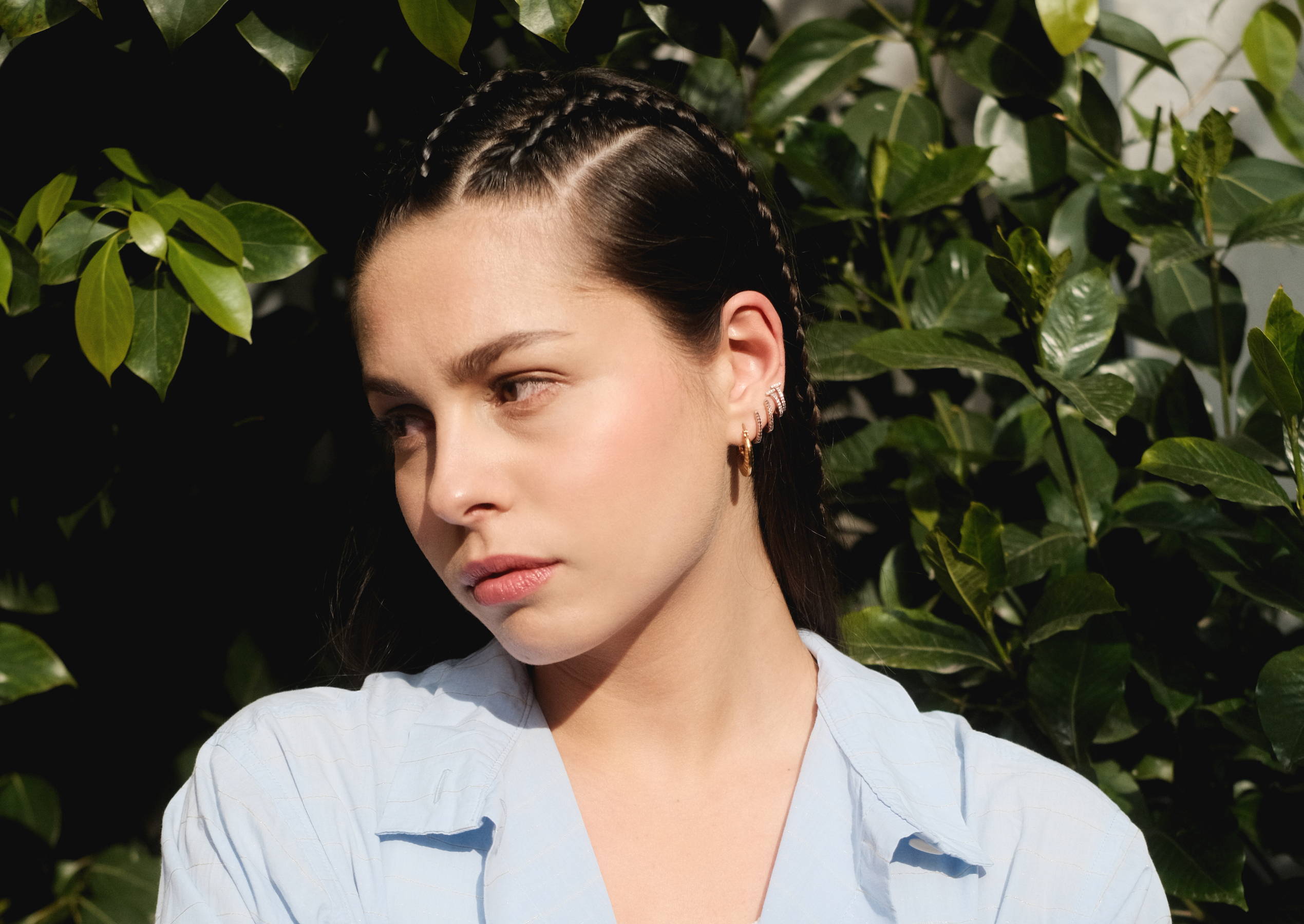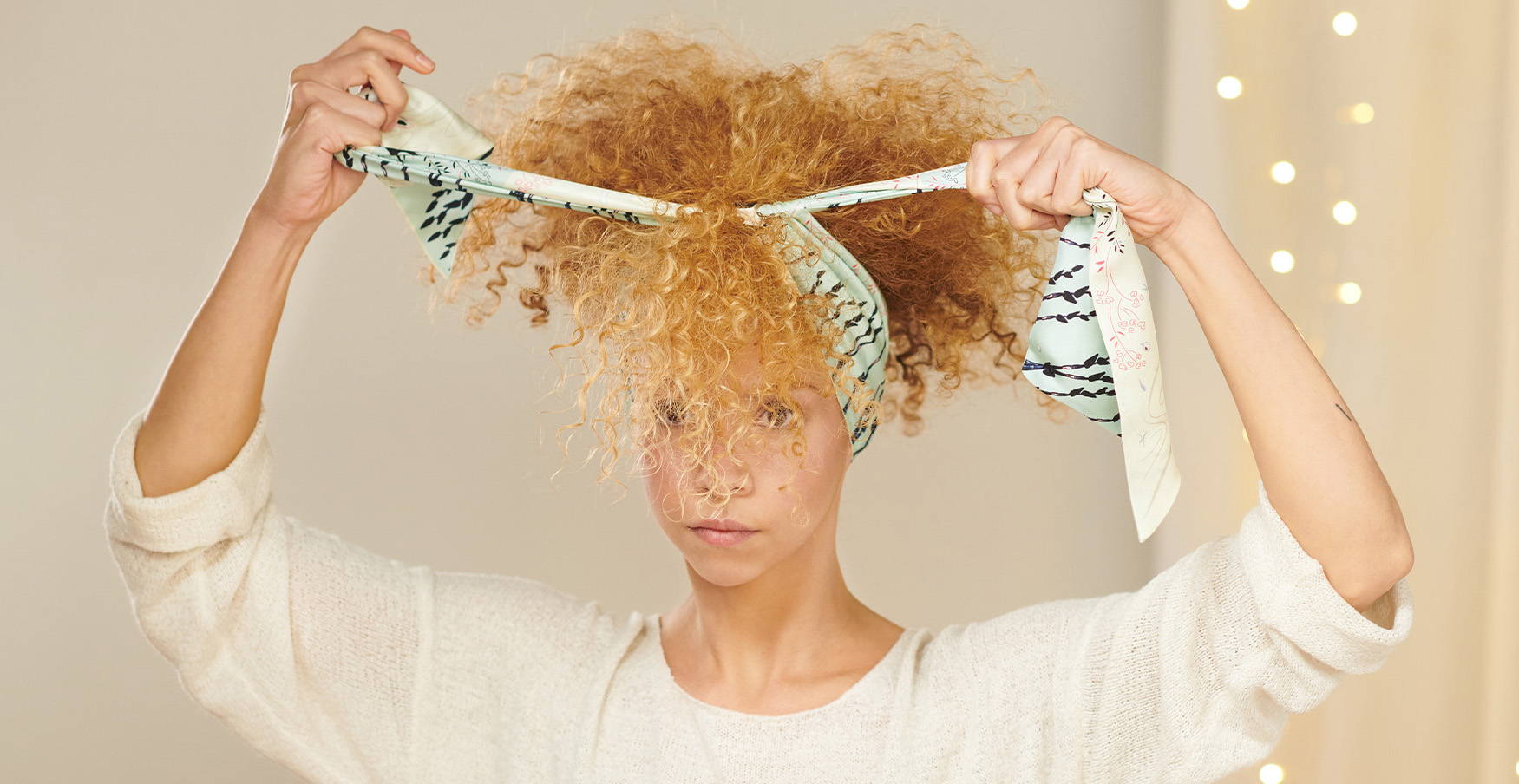Free Carbon Neutral Shipping On Orders $75+, Plus Free Samples!
Buy Now and Pay Later in 4-interest free installments with Klarna
Whether you're looking to transition to your natural hair, want a break from everyday styling, or just need some hair inspo, protective hairstyles are a must for your natural curls. Curly hair (4C coils especially) can be very dry, so exposure to things like heat and styling can be extremely damaging. Protective styles limit that exposure, because they’re designed to last longer than a regular hairstyle. But in addition to keeping your hair healthy, protective hairstyles are a fun, low-commitment way to experiment with different looks. From protective braids to twists, buns, wigs and weaves, we’re breaking down everything you need to know about protective hairstyles for natural hair—plus our favorite products and expert tips—ahead!
Curly hair is strong and resilient, but it’s especially vulnerable at the curve of the curl and at the ends, making it susceptible to tangles, knots, snags, and breakage. So when it comes to protective styling, it’s all about protecting your hair from damage, maintaining hydration, and retaining length. A protective hairstyle keeps your ends tucked away to protect your hair from things like humidity, heat, and physical manipulation. Your hair is hidden and tucked away, protecting the shaft and ends. Protective styles also promote hair growth and are perfect for maintaining your hair while it is getting longer. In addition to retaining length, these styles protect the hairline from thinning, help strands retain moisture, and require very low maintenance.

Protective hairstyles date back more than 3,000 years ago to ancient Egypt, where archaeologists documented finding a woman buried with 70 weave extensions attached to her hair. But the versatility of these styles and wigs has come a long way since then. These are the most common types of protective hairstyles for natural hair.
First up on our list are protective braid styles like cornrows, box braids, and twists. By intertwining strands of hair, these styles create a protective shield that locks in moisture and minimizes friction, making them ideal for maintaining the health of your natural hair.
Next up are buns and updos. This category of protective hairstyles not only preserve the health of your natural hair, but they also complement a range of occasions, from casual outings to formal events. There’s a protective bun or updo for any event.
Wigs and weaves offer a versatility that other protective styles just can’t offer. Wigs and weaves allow for an interchangeable personal style expression while preserving the integrity of your natural hair.
Locs are one of the most common protective styles for natural hair. But they’re more than just a style that minimizes hair manipulation: locs have a cultural and spiritual significance that provide a canvas for storytelling, celebrating heritage, and embracing identity.
Other options like head wraps and scarves offer endless possibilities for creating looks that both protect and accessorize. You can choose different fabrics and patterns and drape them and tie them in so many different ways.

Protective hairstyles not only give you a new look but aid in length retention, hair growth. If you’re ready to give your natural hair a break and try a protective style, there’s no time like the present. To help get you started, we have compiled a list of 15 protective styles to try now.
Maybe the most classic of all protective hairstyles are box braids. This style involves sectioning the hair into square-shaped segments and braiding each section from the roots to the ends. Box braids can be worn in lots of different ways and worn in different lengths and styles from updos to ponytails.
Cornrows are tight, flat braids that lay close to the scalp. They can be braided in different patterns and designs, and worn long and short, making them super versatile. Cornrows are another classic protective hairstyle.
Similar to braids, and a fun summer hairstyle, are twists. This style involves two sections of hair twisted around each other. They come in different sizes and can be worn loose or styled into buns or updos.
Bantu knots are a 70s-style hairstyle that is just as popular today. The style consists of small, coiled sections of hair that are twisted into knots. They create a unique textured look when unraveled, making them a great option for a protective style with a twist.
Faux locs imitate the appearance of traditional locs without long-term commitment. They can be created using synthetic hair or yarn, and in different styles. Faux locs are one of the coolest protective hairstyles out there.
These chunky twists are larger in size and are typically created using extensions. Havana twists are a bold and voluminous protective hairstyle.
Senegalese twists are similar to Havana twists but are smaller in diameter. These twists are neat and versatile and can be worn in lots of different styles.
Crochet braids involve attaching sections of hair to cornrows using a crochet needle. This method allows for quick installation and a wide range of styling options.
Pulling your natural hair up into a bun or updo made of box braids, locs or cornrows is both a protective style and popular red carpet hairstyle.
Wigs are a fun and low-commitment way to both protect your natural hair and try out different looks. Wigs let you change your style as often as you want, without manipulating your natural hair. They come in various styles, lengths, and textures.
Weaves involve sewing in extensions to create a full and protective hairstyle. Weaves are also a fun way to experiment with different looks, and can be styled lots of different ways.

Using head wraps or scarves as a winter hairstyle is the perfect way to protect your hair from the elements while adding a pop of color and an added accessory to your outfit.
Flat twists are similar to cornrows but are created by twisting two sections of hair together along the scalp. They can be worn as a protective style or incorporated into various updos.
Goddess braids are a cute summer style. They’re larger and more intricate versions of cornrows that create a crown-like halo effect. Clips or other hair accessories can be added to these braids to dress them up or down.
This style involves gathering your hair into a high ponytail or bun at the top of the head, resembling a pineapple. It's a simple yet effective way to protect the ends of your hair.
Protective hairstyles are beautiful in any season, keep your natural hair healthy, and allow for experimentation without much commitment. But they’re really about protecting your hair. These tips will help you extend the life of your protective hairstyles.

Start with clean, well-moisturized hair. Deep conditioning and priming with a relaxing fluid before your protective style is the best way to make sure your hair is ready to be tucked away.
If you choose a protective long hairstyle that requires extensions, use high-quality hair that matches your natural texture. Avoid extensions that are too heavy or cause excess tension on your scalp.
Styles like box braids or weave installations are best left to professionals. Proper installation minimizes the risk of hair breakage or damage.
Be mindful of how tight your protective style is. Excessive tension can lead to hair breakage and stress on your scalp.
A clean scalp is crucial for hair health. Use a lightweight, sulfate-free cleanser to prevent product buildup without stripping your natural oils.
Even in protective styles, your hair needs moisture. Use a water-based leave-in conditioner to maintain hydration and prevent dryness.
Seal your hair ends with natural oils to prevent split ends and breakage, and use heat protection every time you heat style to promote healthy hair growth.
Whether you’re looking for a lower-maintenance hair care routine for your natural curls or some new hairstyle inspiration, a protective style is the answer. Protective hairstyles limit exposure to things like heat and styling that can be extremely damaging. In addition to keeping your hair healthy, they’re a fun, low-commitment way to experiment with different styles. They can easily be switched up to add length, or you can mix in different colors and textures to change up your look. Not only are protective hairstyles well-loved methods for preserving natural hair, they’re also just plain fun. From protective braids to twists, buns, wigs and weaves, book an appointment with a hairstylist to get the look. And as always, use only the highest quality curly hair products like the ones from Davines.
by Jaclyn LaBadia, featured contributor
Laisser un commentaire
Les commentaires sont approuvés avant leur publication.